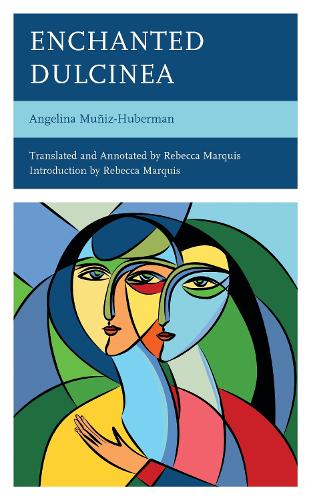
Enchanted Dulcinea
(Hardback)
Publishing Details
Enchanted Dulcinea
By (Author) Angelina Muiz-Huberman
Edited and translated by Rebecca Marquis
Translated by Rebecca Marquis
Introduction and notes by Rebecca Marquis
Bloomsbury Publishing PLC
Lexington Books
17th March 2022
United States
Classifications
Professional and Scholarly
Non Fiction
Fiction: literary and general non-genre
863.64
Physical Properties
Hardback
186
Width 160mm, Height 228mm, Spine 21mm
467g
Description
In Enchanted Dulcinea, this English translation of the novel by Mexican author Angelina Muiz-Huberman, Dulcinea travels in a car writing novels in her mind about several Dulcineas: a medieval princess on a quest, a nineteenth-century lady-in-waiting in Mexico, and a twentieth-century young woman who was sent to Russia as a girl to escape the Spanish Civil War and later journeys to Mexico to reunite with her parents. Unsure of her identity, Dulcinea remembers, debates, and records memories of her exile. As she circles Mexico City, she examines the role of memory, speech, and writing through her fragmented narrative voice. Dulcinea explores her place in the world through storytelling, blurring the line between reality and imagination. This novel pairs a lyrical and contemplative style with experimental writing to present common themes of identity formation and exile in a unique form. Dulcineas quest is also one of spiritual connection with apocalyptic and mystical overtones. With allusions to both Christian and Jewish mystical traditions, this novel reveals a crypto-Jewish presence typical of Muiz-Hubermans writing, forming part of a Sephardic literary tradition. This edition includes an introduction and annotations by the translator, Rebecca Marquis.
Reviews
It comes to no surprise that this welcomed English translation of one of Angelina Muiz-Huberman's best known novels, Enchanted Dulcinea (1992), would be part of a book series for Jewish women in the Americas. While a notable part of her prolific publications is focused on Jewish themes, this novel had not been considered, until now, as one of them. In the book's introduction, Rebecca Marquis aptly reveals the themes of Jewish Mysticism that lie beneath the surface of Enchanted Dulcinea's apparent secular plot following three fragmented and intertwined stories about the heroine's journeys and exiles spanning from the Middle ages to WWII. Marquis highlights the underlying mystical themes that run beneath Muiz-Huberman's writing, including echoes of the Shechinah and images from the Hekhalot and Merkavah traditions. Mirroring the author's crypto-Jewish past, this novel includes a hidden, but deeply rooted connection to the Jewish mystical tradition.
--Ariana Huberman, Haverford CollegeIt is fitting that Angelina Muiz-Huberman's seminal novel Dulcinea encantada be the inaugural volume in Lexington's "Jewish Women in the America's" series. Rendered masterfully into English translation by Rebecca Marquis, Enchanted Dulcinea is a novel that will both delight and confound readers, as the author intended. The translation is published as a critical edition with a scholarly introduction and explanatory footnotes that guide the reader through the complexities of the text. Marquis places the novel in the context of the Jewish mystical tradition, which informs much of the author's literary oeuvre. This version of Enchanted Dulcinea will be beneficial to students, scholars, and readers in general.
--Darrell B. Lockhart, University of Nevada, RenoAuthor Bio
Angelina Muiz-Huberman is currently retired after having taught at the National Autonomous University of Mexico for 54 years. She has published 50 books of fiction, poetry, and essays.
Rebecca Marquis is associate professor of Spanish at Gonzaga University.
